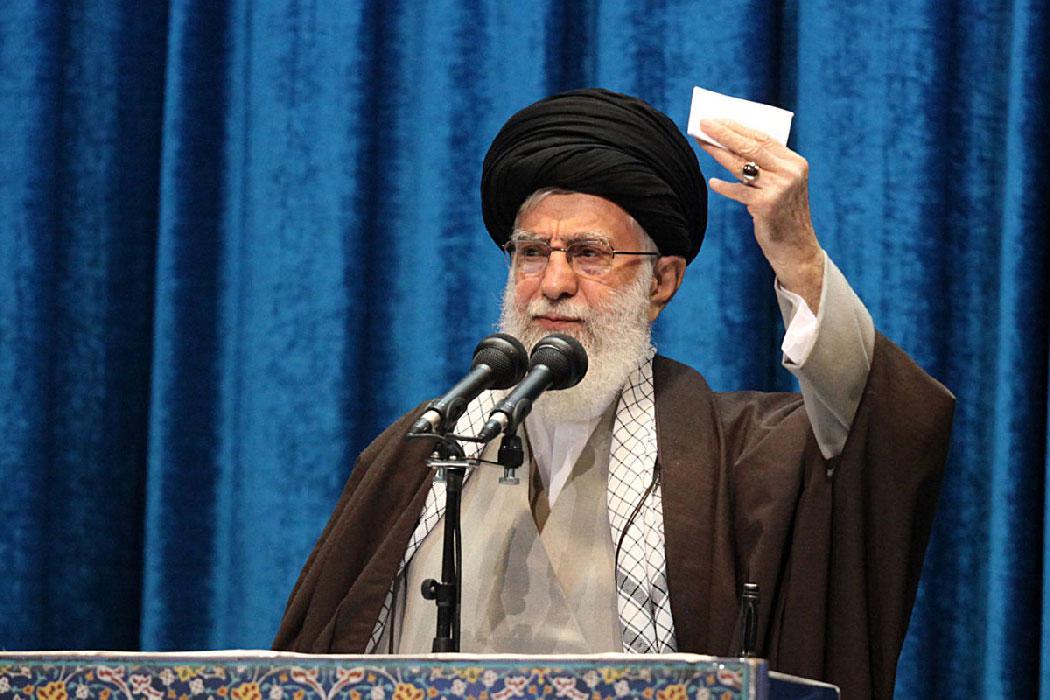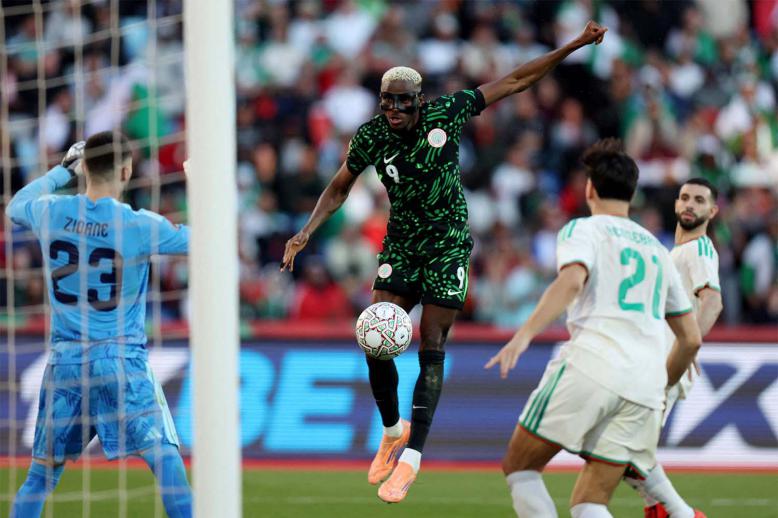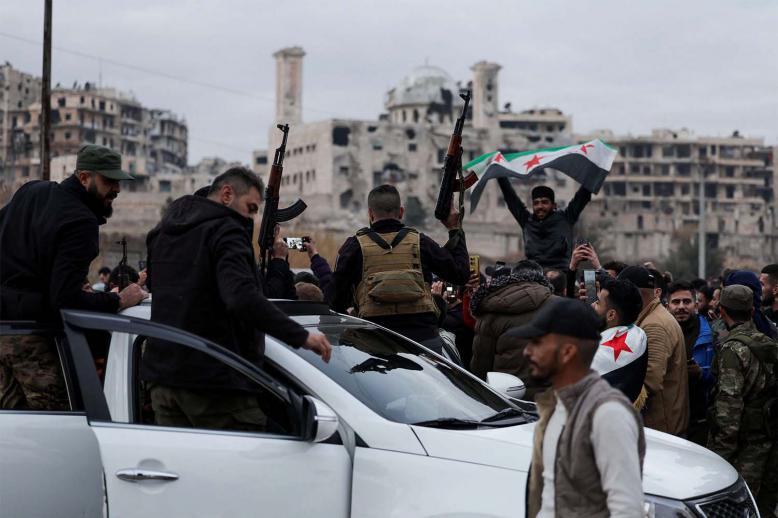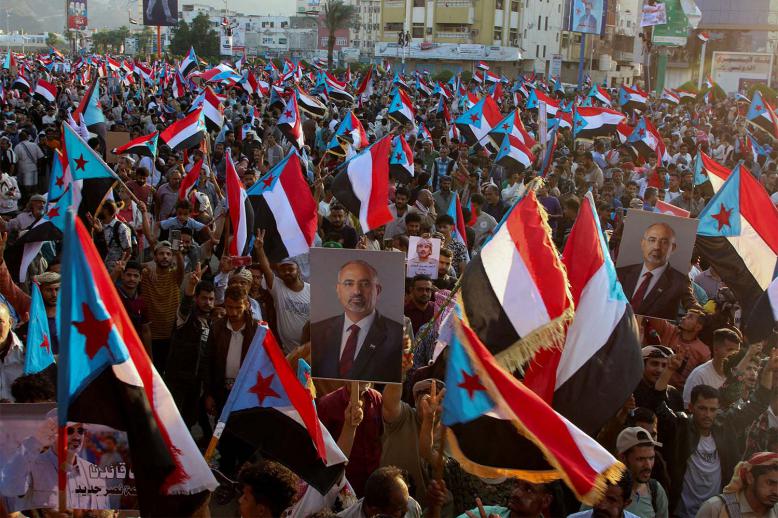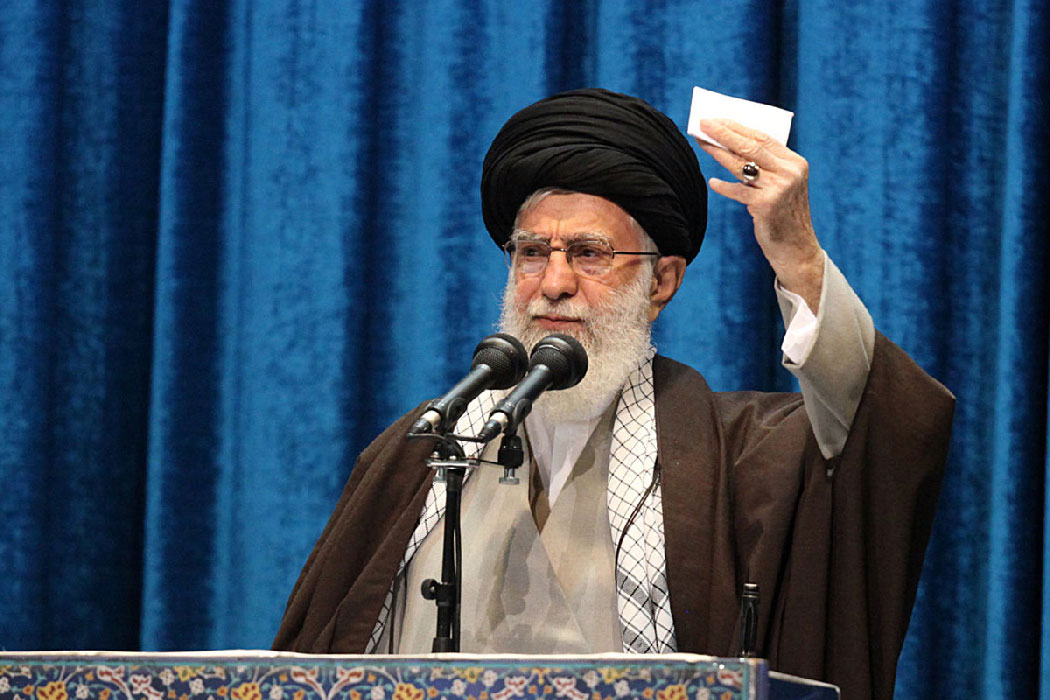Khamenei says Iran's 'slap' to US in Iraq was 'hand of God'
TEHRAN - The Islamic Revolutionary Guard Corps (IRGC) can take their fight beyond Iran's borders, the supreme leader said on Friday, responding to the US killing of a top general and to unrest at home over the accidental downing of an airliner.
In his first Friday prayers sermon in eight years, Ayatollah Ali Khamenei also told thousands of Iranians who chanted "Death to America" that European states could not be trusted after they launched a nuclear agreement dispute mechanism, in response to Tehran's decision to ramp up its nuclear activity. The measure could lead to UN sanctions being reimposed.
"Resistance must continue until the region is completely freed from the enemy's tyranny," Khamenei said, in a reference to the United States that renewed his call for US troops to leave neighbouring Iraq and the wider Middle East.
Washington's withdrawal in 2018 from Tehran's nuclear deal with world powers and the reimposition of US sanctions has triggered a series of escalations in tensions over several months, that briefly led to open conflict in January.
US President Donald Trump ordered the killing in a drone strike on Jan. 3 of Qassem Soleimani, commander of the Quds Force, a unit of the IRGC responsible for expanding Iran's influence abroad. He built up sectarian regional militias that Washington has blamed for attacks on US forces.
Iran has also been accused by numerous states in the Middle East of interfering in their affairs and sponsoring sectarian militias throughout the region, with Soleimani seen as the chief architect of Tehran's adventurism. Iranian proxy forces play a key role in the wars in Yemen and Syria, and Tehran is the main sponsor of Shiite militant group Hezbollah in Lebanon and the Islamist group Hamas in occupied Palestine.
Iran responded to Soleimani's assassination with missile strikes on US targets in Iraq on Jan. 8, injuring although not killing US troops.
"The fact that Iran has the power to give such a slap to a world power shows the hand of God," said Khamenei, in a reference to the strikes, adding that the killing of Soleimani showed Washington's "terrorist nature".
"The Quds Force is a humanitarian organisation with human values that protects people across the region," Khamenei said. "They are fighters without borders."
In the tense aftermath of Iran's missile strikes on US targets, when Iranian forces expected US reprisals, the Guards' air defences shot down a Ukrainian airliner in error. Khamenei called the shootdown of the plane a "bitter accident" that he said had saddened Iran as much as it made its enemies happy. He said Iran's enemies had seized on the crash to smear the Islamic Republic, the Revolutionary Guard and the armed forces.
Ukraine's Foreign Minister Vadym Prystaiko said on Friday that his country wants Iran to issue a formal document admitting its guilt for the crash. Ukraine, Canada and other nations whose citizens died in the crash have demanded Iran pay compensation to the victims' families.
The shooting down of Ukraine International Airlines flight 752, which was carrying 176 passengers including 82 Iranian citizens, was particularly painful for the people of Iran, who remember the 1988 shooting down of an Iranian passenger jet by the US Navy as a traumatic event in the country's history.
The reaction to the perceived incompetence of the Iranian military in the shooting down of the Ukrainian plane has been furious. It took three days for Tehran to admit the mistake as authorities concealed their role in the tragedy, initially blaming the crash on a technical problem.
That delay sparked protests across Iran that sometimes met a violent crackdown, with protesters being shot in the streets.
'American clowns'
Trump has openly encouraged the protesters, even tweeting in Farsi, hoping that the protests and the sanctions will bring about fundamental change in a longtime adversary. That drew an angry response from Khamenei.
"These American clowns who lie and say they are with the Iranian people should see who the Iranian people are," he said on Friday. "If you do stand with the Iranian people it is because you want to stick your poisoned dagger into the back of the Iranian nation. Of course you haven't been able to do that so far, and you won't be able to do a damn thing.”
Khamenei urged national unity, describing the shooting down of the Ukrainian plane as a tragedy, and called for steps to ensure there was no repeat. But he added that Iran's "enemies", a term usually used to refer to the United States and its allies - notably Israel and Saudi Arabia - had tried to use the downing of the airliner to shift attention from the killing of Soleimani.
The funeral of Soleimani, seen by the West as a ruthless adversary, had brought huge numbers of Iranian mourners to the streets.
But scenes of mourning for Soleimani were followed by four days of protests over the plane disaster, as demonstrators chanted "Death to Khamenei" and "Clerics get lost". Such public criticism can result in a jail term in Iran. Videos on social media have shown angry protesters tearing down posters of Soleimani, who the Islamic Republic portrays as an Iranian national hero.
Praising the slain general, Khamenei said his actions beyond Iran's borders were in the service of the "security" of the nation and that the people are in favour of "firmness" and "resistance" in the face of enemies.
"The few hundred who insulted the picture of General Soleimani, are they the people of Iran, or this million-strong crowd in the streets?" he asked. It was the likes of Soleimani, not the protesters, who had devoted their lives to Iran, Khamenei said.
"Not only did the deceived ones... not give their lives for Iran, but they did not sacrifice one of their interests for their country."
Videos on social media have also shown angry Iranians refusing to step on Israeli and US flags, painted on the ground in public areas for people to step on, with protesters saying that Tehran should look to solve mounting domestic problems before pointing fingers or interfering in the affairs of neighbouring countries.
To quell the demonstrations, riot police were sent onto the streets in force, lining up outside universities that were a focus for the protests. Video footage online showed protesters were beaten and also recorded gunshots and blood on the streets. Iran's police denied firing at protesters and said officers had been ordered to show restraint.
Two months ago, the authorities also launched a bloody crackdown on protests that erupted over fuel price hikes, which have hurt ordinary Iranians already feeling the squeeze of US sanctions
Washington reimposed sanctions after it withdrew from Tehran's nuclear pact with world powers. Since then, Tehran has scaled back on its commitments to the deal, including saying it would stop observing limits on uranium enrichment.
Britain, France and Germany have subsequently launched a dispute mechanism in the deal, which starts a diplomatic process that could lead to the reimposition of UN sanctions.
"These European countries cannot be trusted. Even their negotiations with Iran are full of deceit," Khamenei said. “These contemptible governments are waiting to bring the Iranian nation to its knees... America, who is your elder, your leader and your master, was not able to bring the Iranian nation to its knees. You are too small to bring the Iranian nation to its knees.”
Khamenei has held the country's top office since 1989 and has the final say on all major decisions. The 80-year-old leader openly wept at the funeral of Soleimani and vowed “harsh retaliation” against the United States. Thousands of people attended the Friday prayers, occasionally interrupting his speech by chanting “God is greatest!” and “Death to America!”


